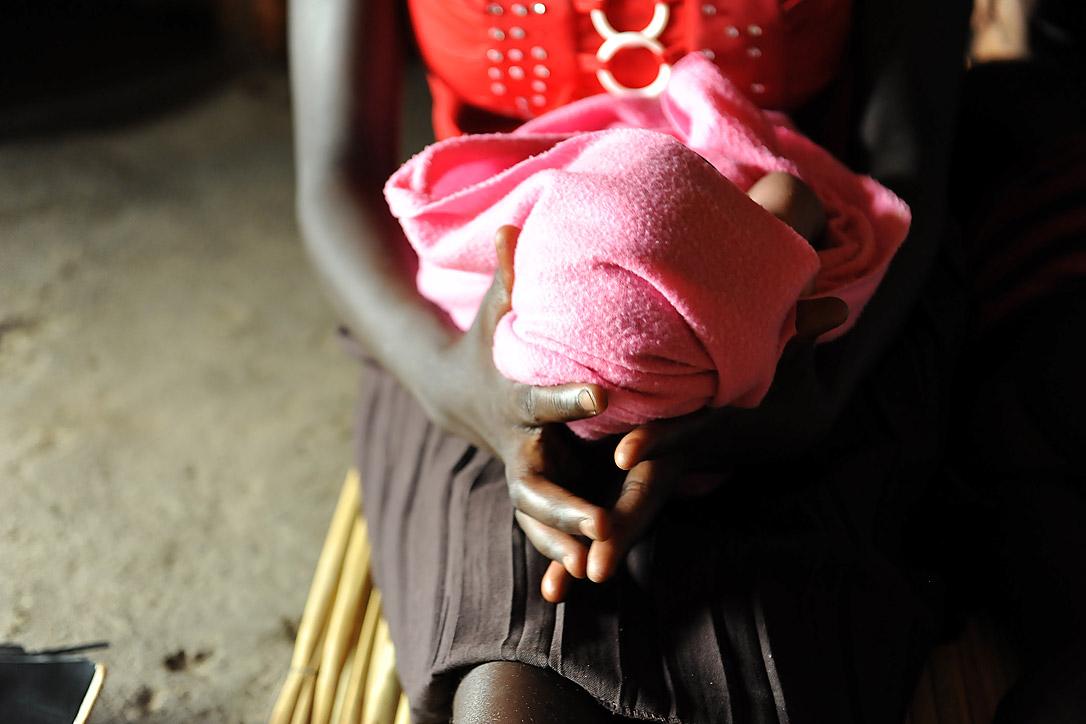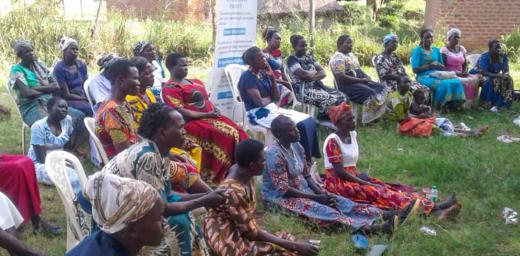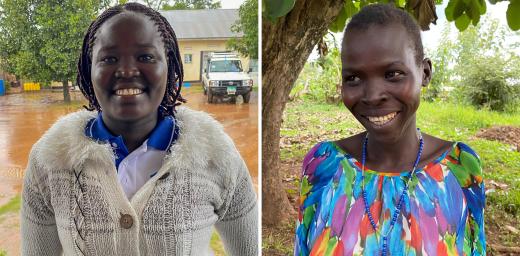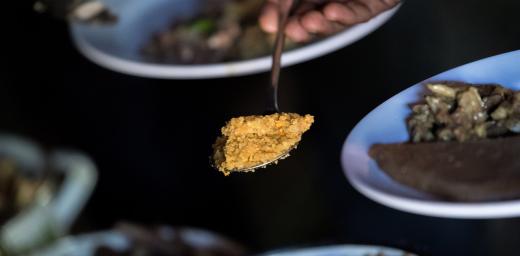Assistance to Survivors of Sexual Violence

Mary holding her baby. Photo: LWF/M. Renaux
Giving Hope and Material Support to Traumatized Refugees
(LWI) – When she speaks, her voice is barely audible. Sixteen-year-old Mary (all names changed) did not choose to be a mother, but a week ago she gave birth to a baby boy, whom she named Emanuel, “God with us.”
The baby, wrapped in a pink blanket, lies sleeping on a mat while Mary tells her story. She is from Juba, South Sudan. When fighting broke out in December 2013, she fled the conflict together with her family, but was separated from them. As she fled, she was attacked and raped. Later she found her grandmother and made it to a refugee camp, where she discovered she was pregnant.
Psychosocial and Material Support
“When I realized I was pregnant, I wanted to take a drug and get rid of the baby,” she says, “but my grandmother told me not to. She said she would help me take care of him.” At the refugee reception center, Mary was identified and enrolled into a medical and psychosocial support system.
Sexual and Gender-based Violence (SGBV) is one of the main intervention points for LWF in Uganda. The program carries out psychosocial support aiming at assisting survivors to attain a stable life and restore hope, dignity, mental and social well-being, as well as a sense of normalcy.
The Lutheran World Federation (LWF) program in Uganda built a hut and supports Mary and her grandmother with cash grants and psychosocial support. “The reason for my being here is not good, but here I have help,” Mary says, while carefully picking up the infant and trying to breastfeed. “My grandmother advises me on child care. I don’t even know how to properly hold a newborn.”
Most of the refugees hosted in the country are coming from the Democratic Republic of the Congo and South Sudan. “I would say ninety percent of my countrywomen in this settlement have been raped,” Ruth says.
Breaking the Silence
Ruth is a strong, tall woman with expressive eyes and hands that tell as much as her voice, but before she starts her story, the 48-year-old mother of five has sent her children from the room. Her voice drops, sometimes to an angry whisper for fear that neighbors might overhear. The teenagers do not know their mother has been raped, or about the dire consequence: When she came to the refugee reception center, Ruth opened up to an aid worker and was taken for a medical examination, where she was diagnosed with HIV. “In that instant, I lost all my energy. I could not stop crying. I could not even leave the room,” she recalls the fateful moment.
“In the following two weeks, I lost twelve kilos.” Ruth takes a crooked nail from her fireplace and scratches two numbers into the clay floor: 86, 74 – the body weight recorded on her medical files. ”The LWF worker advised me that HIV is not a death sentence. She said others might die earlier than me from other causes. She told me to accept myself, and offered help,” Ruth continues.
Mental and Physical Well-Being
The silence surrounding rape and HIV is strong. The women in the community are afraid to open up to each other, even though they know there are other survivors among them. Ruth’s husband, who was killed in the conflict, never learned about what had happened to his wife. “If he’d known, he would have divorced me immediately,” she says, touching the wedding band she still wears. “To keep your family and the respect of the community, you have to remain silent.” The aid worker who assured her confidentiality was the first person Ruth felt comfortable talking to.
Like other survivors of SGBV, the LWF provided Ruth with building material for a hut, and a cash grant to open a small business. She sells cassava flour, tomatoes and silver fish, which she keeps in a green plastic bucket. When business does not go well, she and the two youngest children eat some of it themselves, additional to the food ration provided to all refugees in the camp.
Ruth is also receiving antiretroviral drugs. She takes them each day and goes for a medical check-up once a month. The biggest help however is the psychosocial support and counseling LWF has given her. “I was feeling like the poorest person on earth,” she says. “Now when I have a problem, I know I can tell LWF staff, and at the end of the day half of the problem is gone. You have changed my life – now I have hope”.
Read more about the LWF humanitarian program in Uganda.





